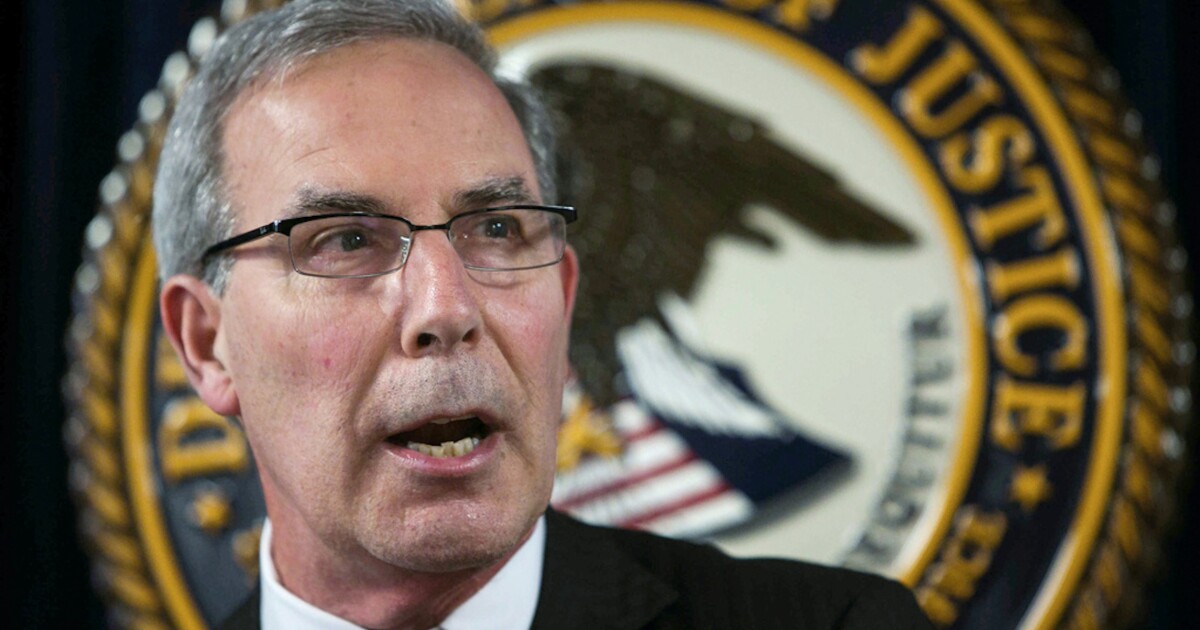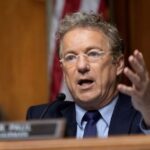

A second FBI official who appeared before the House Judiciary Committee on Monday testified that now-special counsel David Weiss had to go through “other processes” to charge Hunter Biden after U.S. attorneys in Washington, D.C., and California allegedly blocked him from bringing charges against Biden last year.
The revelation came in a 180-page transcript, obtained by the Washington Examiner, of an interview the committee conducted with an assistant special agent in charge at the Baltimore Field Office. The agent was accompanied during the interview by a Department of Justice lawyer and an FBI lawyer, according to the transcript.
REPUBLICAN THREAT BECOMES REAL FOR BIDEN AFTER IMPEACHMENT INQUIRY
Asked by committee staff about Weiss’s charging authority at the time of a key Oct. 7, 2022, meeting, the agent said, “I’m aware that obviously charging discussions were happening, and, yes, there was a difference in the venue for some of those charges.”
“I remember learning at some point in the investigation that Mr. Weiss would have to go through his other processes because the U.S. Attorney’s Offices had, I guess, in that sense, using that terminology, wasn’t going to partner,” she said in reference to the Washington, D.C., and central California offices.
The agent works in the Baltimore Field Office under FBI Special Agent in Charge Thomas Sobocinksi, who testified to the committee last week on the same topic. The Washington Examiner was asked to withhold her name for this story after she conveyed in her testimony that an agent had received “concerning” contact from people after the agent’s name was made public.
Sobocinski testified that Weiss seemed to have all of the charging authority he needed, but then, similar to the other agent, he added that Weiss would have to go through an “administrative process,” which, he said, “definitely seemed very cumbersome.”
Weiss himself told Congress in June that he had always had the “ultimate authority” on “where, when, and whether to file charges” in the case, but he later added that he was “geographically limited” to Delaware but could at any time request “special attorney” status to bring charges in an outside jurisdiction.
The assistant special agent in charge was also asked about some of the allegations that a pair of IRS criminal investigators-turned-whistleblowers made about Weiss’s authority and other aspects of the Hunter Biden case in testimonies in May. While she said she did not have all the “same recollection[s]” as the IRS officials, she also did not have any concerns with the veracity of their statements when asked about it.
“I didn’t read [the testimony] in its entirety, but what I — what I remember of what I did see, not that anything was untrue, just that I didn’t have the same recollection of everything or the same understanding,” she said.
Her and Sobocinski’s testimonies come amid House Speaker Kevin McCarthy (R-CA) launching an impeachment inquiry into President Joe Biden based on allegations he was inappropriately involved with his son’s business dealings while serving as vice president. Republicans have not uncovered definitive evidence to prove the allegations are true at this stage.
Part of the GOP’s inquiry involves investigating if Hunter Biden received “special treatment” during the DOJ’s yearslong investigation of him. The investigation culminated after about five years in Weiss, the case’s lead prosecutor, charging the younger Biden in June with two misdemeanor tax charges and a felony gun charge, which Republicans found to be deeply inadequate.
The IRS whistleblowers’ testimony supercharged the DOJ component of Republicans’ inquiry when they testified that the DOJ had “slow-walked” its investigation of Hunter Biden and allowed statutes of limitations to run out on some tax charges.
Gary Shapley, one of the whistleblowers, said the controversial meeting he attended on Oct. 7 was a “red-line meeting” for him and that Weiss revealed at it that he had requested special counsel authority from the DOJ but was denied it.
Weiss also indicated at the meeting that he had been blocked by U.S. attorneys from bringing charges in Washington, D.C., and California, Shapley said.
Weiss, for his part, was granted special counsel status by Attorney General Merrick Garland in August after a plea deal for the three charges he brought against Hunter Biden fell apart. Before August, Weiss had never requested special counsel status and only had “discussions” about his authority with the DOJ, according to a letter he wrote to Sen. Lindsey Graham (R-SC) in July.
The DOJ pointed to Weiss’s comments in that letter when asked for comment on the new FBI testimonies.
On the issue of the venues outside Delaware, the FBI assistant special agent said she had more awareness about California than Washington, D.C., and she confirmed that U.S. Attorney Martin Estrada of California declined to bring charges against Hunter Biden.
Asked what would happen next because of Estrada’s decision, she said, “My understanding is that — and, again, I don’t — I don’t know the specifics but that Mr. Weiss could, and I could be incorrect in the terminology, but basically be like a special — special counsel, special [assistant U.S. attorney] — I’m sorry, not special counsel but like a special AUSA, partnering AUSA, in an attorney’s office that is outside of his own. So, again, there had been a process. He would still have the authority to do so. It’s just that now, he would do it differently.”
CLICK HERE TO READ MORE FROM THE WASHINGTON EXAMINER
The agent also consistently maintained that communication was a problem in the case but was stopped by the attorneys at times as they cited the DOJ’s long-standing policy of not divulging information about ongoing investigations.
Asked, for instance, if she was aware of any tensions between investigators and Assistant U.S. Attorney Lesley Wolf, an attorney interjected, “She can answer that to the extent there’s sort of a general response to the existence of tensions, but to the extent it gets into specific investigative steps, she’s not authorized to get into that.”






